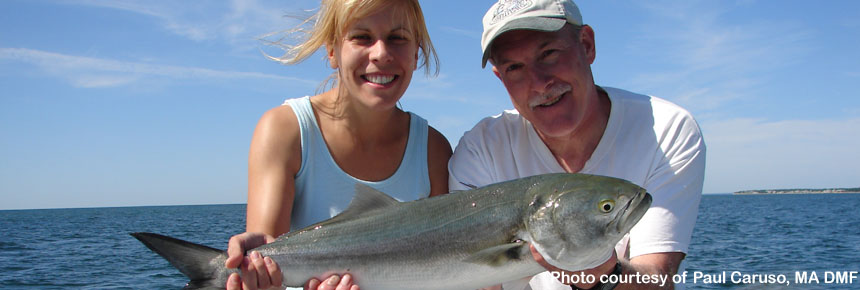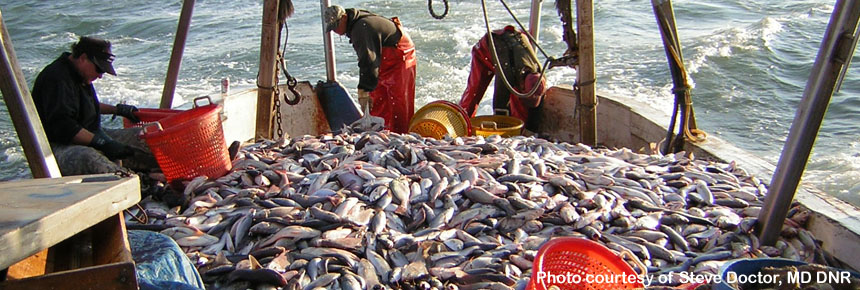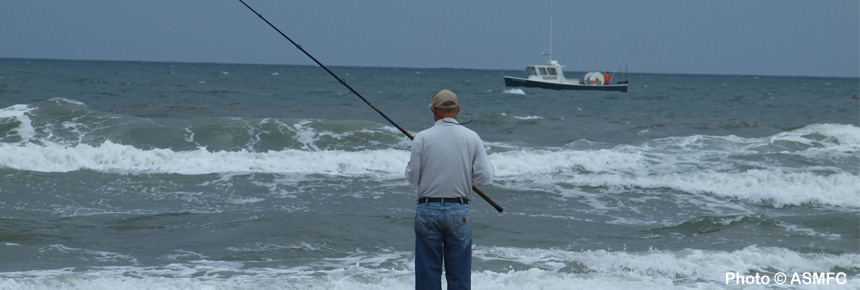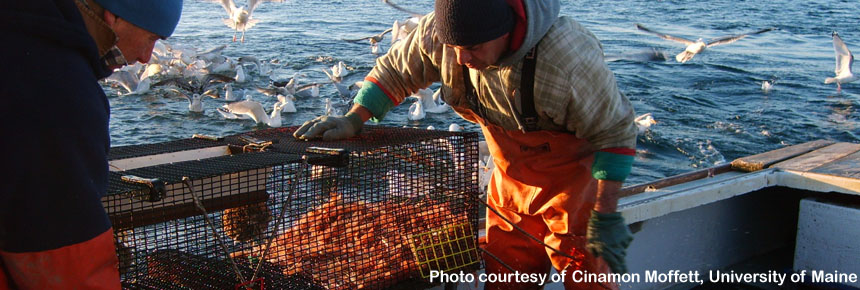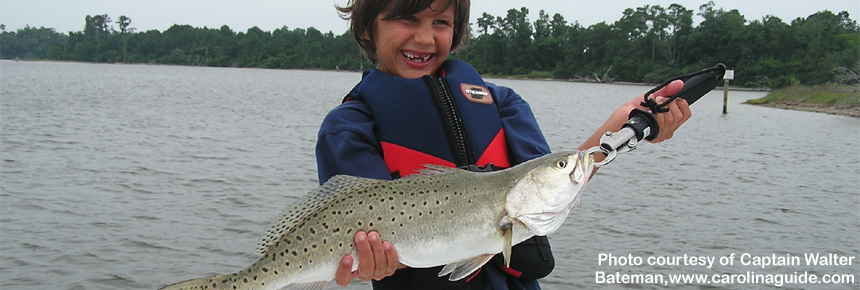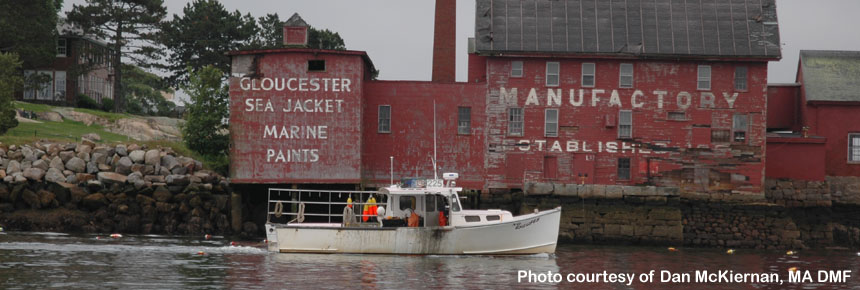Fisheries Management
The Atlantic states recognize their marine fish populations are rich resources, producing high economic yield, supporting recreational and commercial fishing opportunities, creating jobs, and providing seafood for consumers in U.S. and global markets. These fish species are also essential to their marine ecosystems, impacting the food web and helping to shape habitats. The science-driven, interstate management system in place is a way to balance short- and long-term economic and environmental considerations.
The main objective of fisheries management is to allow enough harvest to sustain and build the fishing and seafood industries while protecting the productivity and sustainability of the marine ecosystems. In order to meet this overarching goal, the Commission strives to meet eight goals, contained within the Commission’s ASMFC Five-Year Strategic Plan, which is reviewed and updated every five years. Annual action planningfor the fisheries management program will be guided by the following objectives:
- Manage interstate resources that provide for productive, sustainable fisheries using sound science
- Strengthen state and federal partnerships to improve comprehensive management of shared fishery resources
- Adapt management toaddress emerging issues
- Practice efficient, transparent, and accountable management processes
- Evaluate progress towards rebuilding fisheries
- Promote sustainable harvest of and access to rebuilt fisheries
- Strengthen interactions and input among stakeholders, technical, advisory, and management groups
The bulk of the Commission’s fisheries decision-making occurs through the Interstate Fisheries Management Program (ISFMP), where species management boards determine management strategies that the states implement through fishing regulations. The Program promotes the conservation of Atlantic coastal fishery resources, is based on the use of sound science, and provides an opportunity for public participation.
The ISFMP Policy Board is responsible for the overall administration and management of the Commission's fishery management program and provides direct oversight to the individual species management boards. It monitors species stock performance, establishes overarching policies to guide decision-making, considers appeals made by the states regarding management actions, and receives reports from various supporting committees. The Board is comprised of the Commissioners from the fifteen member states and representatives from the District of Columbia (DC), the Potomac River Fisheries Commission (PRFC), NOAA Fisheries and the U.S. Fish and Wildlife Service (USFWS). The Board also includes one non-voting member of the Commission’s Law Enforcement Committee.
The accompanying graphic shows the flow of decision-making, with the Commission being the highest level, and advisory panels, technical committees, plan development and review teams providing support to the species management boards and sections.

ISFMP staff play an important role by helping to coordinate the activities of all the above committees. A list of staff and their respective species responsibilities can be found here. Board and committee membership lists can be found here.
For more details about our fisheries management process, including management structure, fishery management plan development, opportunities for public input, state/federation coordination, and compliance, go to Management 101.
Contacts
Toni Kerns, Fisheries Policy Director
Tina Berger, Director of Communications
Guiding Documents
ASMFC Compact, Rules and Regulations (revised February 2016)
ISFMP Charter (revised August 2019)
ASMFC Appeals Process (revised August 2022)
Conservation Equivalency: Policy and Technical Guidance Document (October 2023)
Technical Support Group Guidance and Benchmark Stock Assessment Process (revised August 2019)
Advisory Panel Nomination Form
Atlantic Coastal Fisheries Cooperative Management Act (1993)
Resources
2022 Report on Atlantic States’ Climate Change Initiatives (August 2022) and Climate Change Actions by State (August 2022)
Guiding Principles for Quota Transfer Related to Safe Harbor (May 2017)
Get Involved in Federal Fisheries Management: Greater Atlantic Region (May 2023)
ISFMP Policy Board Proceedings
- 2023 Oct Aug Jul May Feb
- 2022 Nov Aug May Jan
- 2021 Oct Aug May Feb
- 2020 Oct Aug Jul Feb
- 2019 Oct Aug May Feb
- 2018 Oct Aug May Feb
- 2017 Oct Aug May Feb
- 2016 Oct Aug May Feb
- 2015 Nov Aug May Feb
- 2014 Oct Aug May Feb
- 2013 Oct Aug May Feb
- 2012 Oct Aug May Feb
- 2010 Nov Aug May Feb
- 2009 Nov Aug May Feb
- 2008 Oct Aug May Feb
- 2007 Nov Aug May Feb
- 2006 Oct Aug May Feb
- 2005 Nov Aug May Feb
- 2004 Nov Aug May Mar
- 2003 Dec Aug Jun Feb
- 2002 Nov Aug May Feb
- 2001 Oct Jul Apr Feb
- 2000 Aug Jun Apr Feb
- 1999 Nov May
- 1998 Oct Jun
- 1997 Oct May
- 1996 Oct Mar
- 1995 Nov Oct Mar
- 1994 Dec Oct
- 1993 Nov
- 1992 Sep
- 1990 Nov
ASMFC Business Session Proceedings
- 2022 Nov Jan
- 2021 Oct
- 2019 Oct Aug May
- 2018 Oct
- 2017 Nov Oct May
- 2016 Oct Aug May Feb
- 2015 Nov Aug
- 2014 Oct Aug Feb
- 2013 Oct Aug May Feb
- 2012 Oct May
- 2011 Nov Aug Mar
- 2010 Nov May Feb
- 2009 Nov Aug May Feb
- 2008 Oct Aug Feb
- 2007 Nov Aug May
- 2006 Oct Feb
- 2005 Nov Aug Feb
- 2004 Nov Aug May
- 2003 Dec Feb
- 2002 May
- 2001 Oct Apr Apr
- 2000 Jun
- 1999 Nov May
- 1998 Oct Jun
- 1997 Oct
- 1996 Oct Mar
- 1995 Nov Mar
- 1994 Oct
- 1993 Nov
